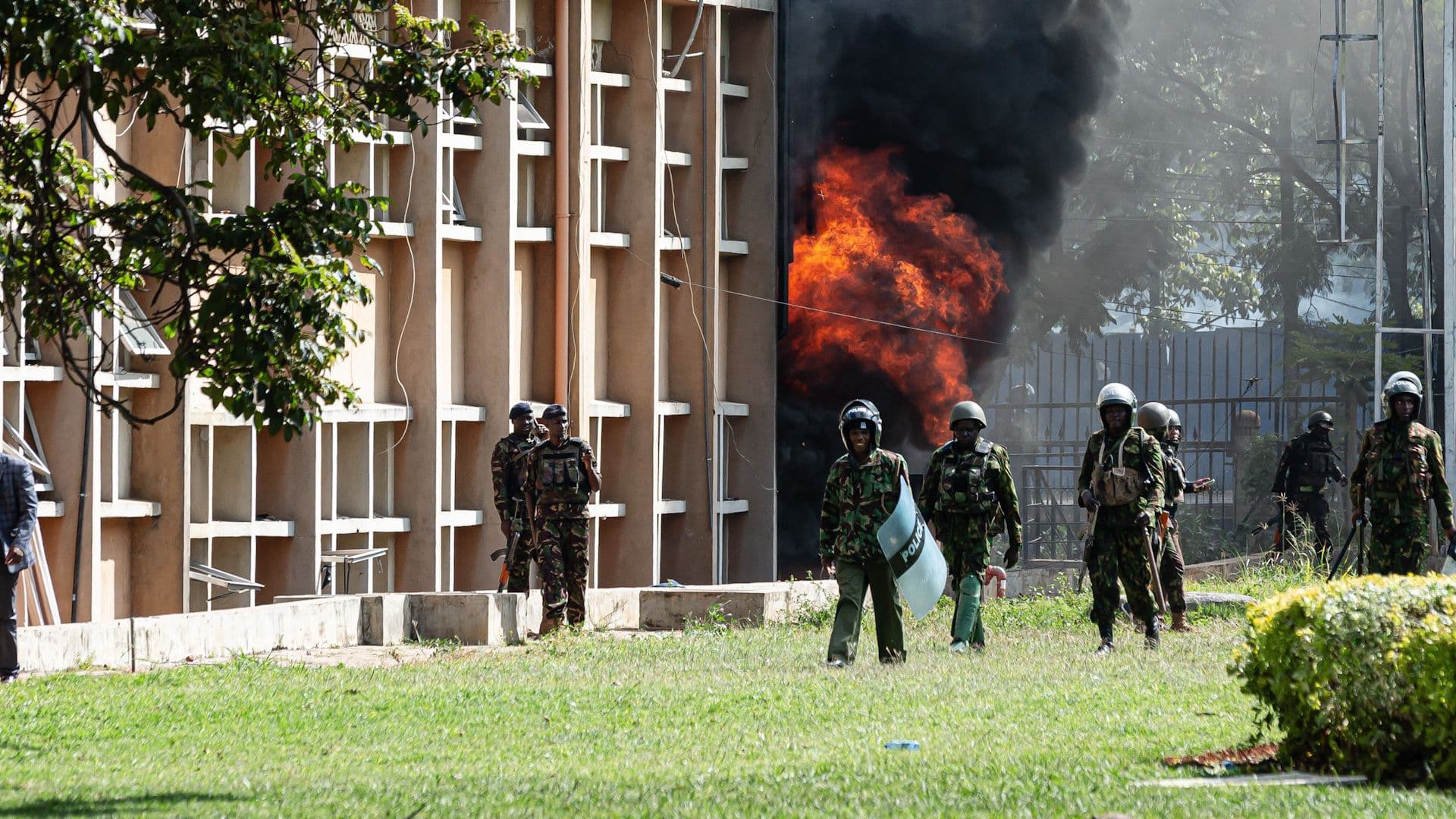Widespread opposition to a controversial finance bill led to violent protests in Kenya, with part of the parliament building set ablaze and calls for President William Ruto’s resignation. The bill aimed to introduce new taxes on essentials like internet data and fuel to raise $2.7 billion for nation

AI assistant for case prep and filings
The unrest in Kenya that led to part of the parliament being burned and called for President William Ruto’s resignation was triggered by widespread opposition to a controversial finance bill.
The finance bill was aimed to introduce new taxes or increase existing ones on various daily essentials, including internet data, fuel, bank transfers, and diapers. As public anger mounted, some of these measures were revised or removed. The Kenyan government proposed these changes to generate an additional $2.7 billion in domestic revenue, which was needed to pay interest on the national debt, reduce the budget deficit, and maintain government operations.
Officials argued that these tax adjustments were crucial for financial stability, but protesters viewed them as excessive and unfair, especially given the already high cost of living.
President Ruto initially gained support by presenting himself as a “hustler” championing the common people’s economic relief. However, his backing waned after he pushed through a contentious tax hike, resulting in violent protests in Nairobi.
The Protests against the bill began on June 18, 2024, led by a youth movement organized primarily through social media. They started by organizing peaceful street demonstrations that were meant to force authorities to drop this finance bill altogether. These protests escalated when the parliament passed the bill on June 25, despite the growing opposition. Protesters stormed the parliament building, setting parts of it on fire and causing lawmakers to flee.
In retaliation President Ruto deployed police and military forces to suppress the protests, aggravating demonstrators and escalating the conflict. According to the Kenya National Human Rights Commission, at least 22 people were killed on Tuesday, with police implicated in some of the shooting deaths. Chairperson Roseline Odede reported that 50 individuals were arrested.
Willian Ruto was elected as President in the year 2022, wherein he consistently urged all Kenyans to pay their taxes fairly. However, some Kenyans have started mocking him as “Zakayo,” likening him to the biblical tax collector Zacchaeus as his aggressive tax policies were seen by many as dictatorial and disconnected from the daily struggles of ordinary citizens. Even in 2023, courts had blocked many of his tax initiatives, to which he threatened to ignore these court orders, drawing sharp criticism from the Law Society of Kenya, whose leader accused him of acting as if he were above the law.
Moreover, many pro-democracy activists have expressed concerns that Ruto’s confrontations with the judiciary reveal an authoritarian streak. They draw parallels between Ruto and his mentor, Daniel Arap Moi, the former president known for his lengthy period of one-party rule in Kenya.





